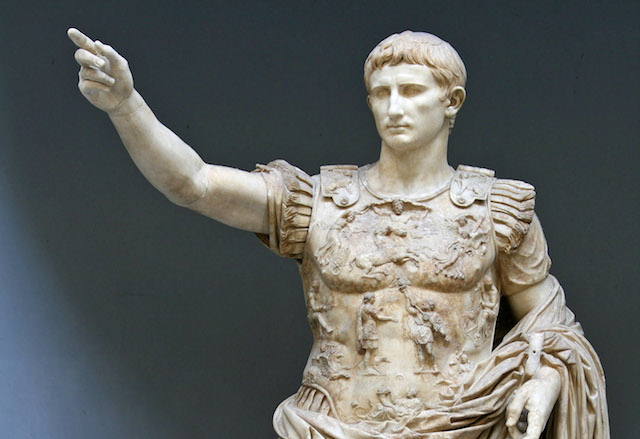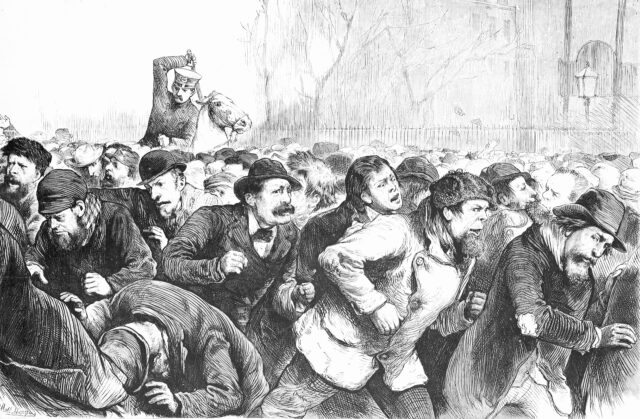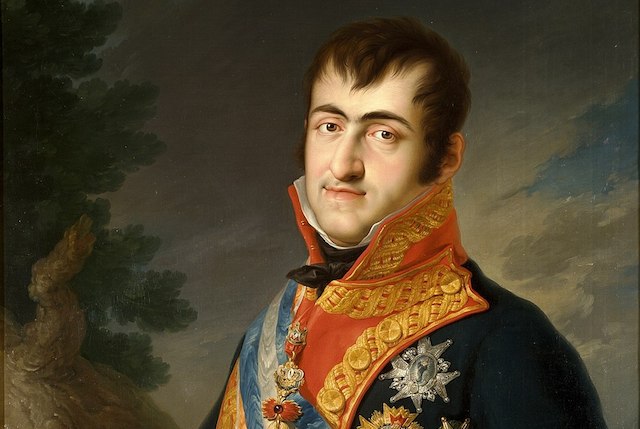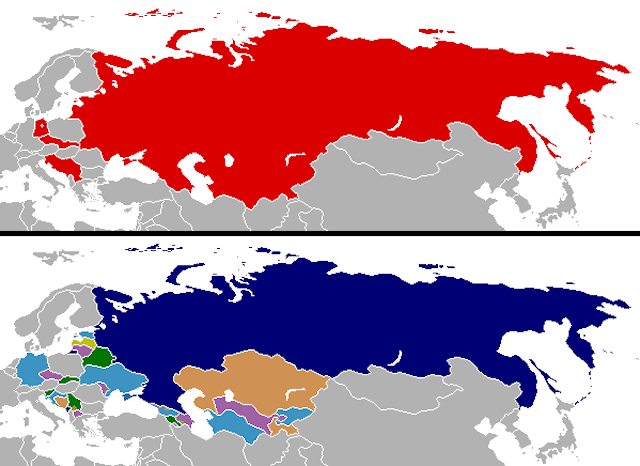We are quite accustomed to the pure historical model of human evolution from uncivilized, hungry, desperate individuals to the well-fed and civilized beings we know today. We have gone from a series of despotisms to complex republics, democracies, collectives, and so on.
Except it’s not that simple. Many times in history, societies have been destroyed by external enemies or rebels within. The effects of these regressions inevitably spill over into the rest of the human race, even if the effects aren’t immediately obvious. So we’d do well to become more familiar with the periods when societies reversed progress in terms of technology, culture, or organization.
10. Rise of the Caesars

Since Julius Caesar and Augustus Caesar had created a certain cult of personality during their reigns, it is easy to think that they were an unalloyed blessing to the Roman Empire. Augustus, in particular, is said to have found Rome a city of brick and left it a city of marble. However, the lower classes of Rome actually had many reasons to curse the arrival of the emperor Augustus; even those who had little interest in the concept of a senate.
Firstly, according to " People's History of Ancient Rome" Michael Parenti , Augustus introduced sales taxes and a death tax that affected only the poor or working class. He destroyed the popular assemblies that provided some measure of popular representation when even the senate proved unmanageably corrupt. As if this were not destructive enough for the working class, he also abolished many of the guilds. The final nail in the coffin of Augustus's idea of any populist inclinations was his legal limits on the number of slaves an owner could free, to prevent free labor from gaining too much bargaining power. It is no wonder that despite all the marble buildings he supposedly oversaw, Augustus' reign was still rife with poverty.and the plague .
9. The Rise of Pinochet

In 1973, democratically elected President Salvador Allende committed suicide in response to a CIA-backed coup. He was replaced by General Augusto Pinochet, who brought with him a multi-year reign of terror. In all, his coup killed some 3,000 people, including the famously widespread practice of dropping 120 people from helicopters. In terms of a specific cultural regression, Pinochet was so openly anti-feminist that women from the Association of families of those detained and missing played a major role in the overthrow of Pinochet as president in 1990.
Pinochet had little regret about biting the American hand that fed him. In 1976, he ordered the assassination of the former Chilean ambassador Orlando Letelier in Washington, D.C. As early as 1986, he openly rejected the Reagan administration's advice on human rights, telling General John Galvin that he would "set Chile's course without advice, without anybody else." Ambassador Harry Barnes called the dictator who had presided over the deaths of so many Chileans and the disenfranchisement of so many more " Chilean Archie Bunker " Such is the banality of evil.
8. Panic of 1873

The period of American history between the end of the Civil War in 1865 and, roughly speaking, the Spanish-American War in 1898 is often overlooked in high school history classes. One thing that gets overlooked as a result is when America went into its first depression, largely as a result of the giant railroad financing of Jay Cooke & Co., which declared bankruptcy in 1873. They took with them 18,000 companies across the country, and by 1876 unemployment peaked at 14% The economic effects of this would last until 1877, and in fact it would affect Europe longer, especially in France, where the economic downturn would last until 1879.
This occurred during a period of increasing labor organizing in the United States. In the state of California in particular, Chinese immigrants were blamed for making the railroads possible and for driving down wages, and so mass atrocities such as the attack on San Francisco's Chinatown erupted. Francisco The anti-Chinese fallout outlasted the Depression, with the Chinese Exclusion Act being signed into law in 1882. Labor unions fared little better, with federal troops sent in to break up strikes or even shoot at them, resulting in the deaths of over 100 workers. In the former Confederate states, the diversion of federal resources meant that the Ku Klux Klan was able to resume its campaigns of terror against black people with full force, arguably causing America to lose its recovery. In short, nothing threatens progress like economic disaster.
7. The Thirty Years' War

The Thirty Years' War, one of the most destructive wars in European history, actually began in 1618, when the Holy Roman Emperor Ferdinand II attempted to restore Catholic rule over Austria and Bohemia. He was more or less successful after five years, but the fighting left Germany vulnerable to invasion by King Christian IV of Sweden, and it was not until the Treaty of Westphalia in 1648 that much of Europe was converted to the concept of centralized religious authority in favor of secularized nation-states. Germany suffered even more horribly.
In addition to the many deaths from war, plague and famine that cost regions in what would become Germany up to 40% of their population Due to the devastation and raids of unpaid mercenary armies, many governments in Central Europe often became virtually unviable. Germany was broken up into 300 principalities. With each country running its own expensive administration, the cost of public services rose much faster than it would have with the devastated economy. In addition, shipping became a nightmare, as cargo on the Rhine could travel through as many 27 principalities , which meant constant stops at customs for the most trivial orders. With such deterioration in trade and poverty, it is no wonder that Germany remained Balkanized for centuries.
6. The turbulent reign of Ferdinand VII

Few reigns have been as intense as that of this Spanish king. The event that allowed him to take the throne of Spain in In 1808 , was the abdication of his predecessor Charles IV, known as the "Revolt of Aranjuez." Since Spain was under the invasion of Napoleon Bonaparte, when the dictator of France pretended to be the mastermind of the French Revolution and handed over monarchical power to the people, Napoleon imprisoned him that same year. Napoleon released him in 1814, when the French troops withdrew from Spain.
While the king was imprisoned, liberal independent forces in Spain adopted a new system of government known as the Constitution of Cadiz in 1812, which, among other liberal reforms, limited the powers of the monarchy. Ferdinand VII had no intention of approving a constitution that limited his newly restored powers and provided for the imprisonment or exile of the liberals who drafted the document. To secure his power, he increasingly turned to reactionary forces, including his brother Don Carlos.
The forces of progress were not defeated forever, however, and scored a major success in 1820 when Colonel Rafael Riego joined the Constitutionalists, starting a civil war that Ferdinand ended later that year when he ratified the constitution. In 1822, Spain fell into civil war again when royalist forces rose up to declare Ferdinand free from the constitution he had signed, prompting the royal French army to invade in their support, until the Liberals declared the constitution null and void in 1823, and Ferdinand had many of them exiled or imprisoned again. At least, this was the case until 1830, when the lack of a male heir meant that he considered Princess Isabella as his successor. Don Carlos would not agree to this, and another civil war broke out; this time Ferdinand had to return to the Liberals, whom he had persecuted for years. His sympathies would remain with them until his death in 1833. Even today liberal historians sharply criticized for the many times he has set back progress in Spain .
5. Prince Metternich

When it comes to monarchs who tried to hold power back from the people in the 19th century, Prince Klemens von Metternich is remembered both for keeping peace in Europe after the Napoleonic Wars and for his extreme despotic rule. He became foreign minister in 1809 and focused on stopping the expansion of the Russian and Ottoman empires as well as democratic institutions, including suppressing popular uprisings. Such uprisings eventually forced him from office in 1848. According to books such as "Bread and Democracy in Germany" Alexandra Gerschenkron , Metternich recognized that although democracy would inevitably take over Europe after such momentous events as the French Revolution, he would roll it back as long as he could.
Even in the 1950s, Metternich was still widely condemned in Germany and Austria. In the films of that period He and his secret police infiltrated peasant festivals, trying to ban the alleged provocative waltzes in favor of traditionalist polka dancing. As Metternich would have recognized, people often do not consider peace a worthy substitute for freedom.
4. The Taliban's Disaster in Afghanistan

Previous TopTenz lists have mentioned that in the 1950s, Afghanistan was arguably the most progressive country in the Middle East, a story that was used by General James Mattis in 2017 to try to convince President Trump to continue the American occupation in hopes of returning the country to that state. This is quite ironic, since it turns out that American Cold War operations were the main reason Afghanistan became a Muslim theocracy. The popular belief is that the US began supporting the mujahideen in an attempt to prevent a Soviet invasion. The truth is that before a single Soviet boot touched the ground in Afghanistan, America was already sending funds to religious extremists like Gulbuddin Hekmatyar , who carried out acid attacks on Afghan women.
By 1994, having defeated the Soviet military and helped bring about the collapse of the Soviet Union, the Taliban allied with the US-backed mujahideen By 1996 they had captured Kabul. If believe Bush and Obama administrations , which in subsequent years led to the curtailment of all kinds of civil rights, especially for women. After two decades of US occupation from 2002 to 2021, these rights were ultimately not restored.
3. World War I in America

America's role in winning the war to end all wars for the Allies often overshadows the dismal effect of the acquiescence to home-front production. Despite President Woodrow Wilson's campaign to keep the United States out of the war, the U.S. government jailed anti-war agitators under the Espionage Act, despite the clear violation of the First Amendment. The arrests were suspiciously directed at the organizers of the strike. The Industrial Workers of the World was a particular target, In September 1917, in the Chicago area alone, to100 members . The most famous of all the arrests was Senator Eugene V. Debs for daring to deliver a speech against American involvement in the war on June 18, 1918, to an audience in Canton, Ohio.
In addition, a wave of anti-German sentiment swept the country. While it is well known that sauerkraut became known as “freedom cabbage,” it took on much more severe forms, such as the murder of immigrants such as Robert Prager, in Collinsville, Illinois. As a result, many Germans actively downplayed their heritage to the point of changing their names and the names of their communities. This failure to acknowledge German heritage helped to downplay the disproportionate role that German abolitionists played a role in preserving the Union in the Civil War, and left a vacuum that was filled by more pro-Confederate propaganda whitewashing the war and its aftermath.
2. Weimar Republic

The rise of the Third Reich occupies such an important place in German history that the post-war 1910s up until Hitler's election as chancellor in 1933 are often overlooked. After Kaiser Wilhelm II abdicated, National Assembly met in the city of Weimar to draft a new constitution and ratified it in February 1919. That same year, was ratified in Germany women's suffrage , and public sentiments such as tolerance towards LGBT citizens began to strengthen in society. A social security system was created.
The Weimar Republic had the good fortune to inherit a terribly troubled economy, and by 1923 hyperinflation threatened the survival of the new government. Only by introducing a new currency, backed by America, rental mark , the situation was saved for a time. When the American economy collapsed in 1929, the Republican economy collapsed with it, allowing the Nazis to pass through parliament and destroying most of these civil rights, although it retained a robust welfare state. For supposedly pure-blooded Aryans.
1. The Fall of the Soviet Union

Previous TopTenz articles have detailed the horrors of the Soviet Union , but its collapse was a terrible catastrophe for millions of people as well. Following Boris Yeltsin's final coup attempt and his replacement by Mikhail Gorbachev in August 1991, the Soviet Communists officially declared their system of government defunct in December 1991.
The result of 15 largely impoverished governments was devastating to many lives. The loss of health care and the switch to less nutritious home-cooked food meant that by 1994 the average life expectancy of men in Russia had fallen by six years , and women - for three years. Infrastructure standards have fallen , privatization has deprived many citizens of mass housing and a sense of social cohesion. It is no surprise that a 2018 survey found that 66% Russians feel nostalgia for the Soviet system.
Dustin Kosky is bracing himself for the next big loss of progress as his post-apocalyptic ghost novel, Return of the Living" will surely put him up against the wall.













Оставить Комментарий